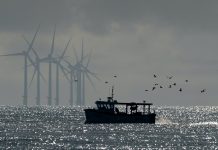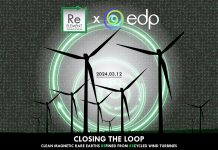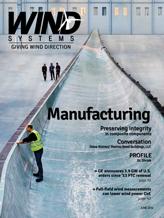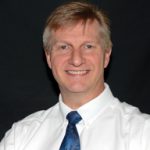Through the years, he had a number of different jobs and short-lived private enterprises. I don’t know the details, but the one I remember hearing about the most from family members was “the Truck.”
It was a general store on wheels—difficult to imagine today, but commonplace back then. His customers were rural blue-collar workers and farmers—busy folks whose ability to travel into town to purchase towels, razors, or flatware was limited by daylight, distance, and in some cases, dollars.
The Truck allowed Papaw Wade to serve what I believe was his true occupational calling. In his chest beat the heart of a natural salesman.
Now, when I say “salesman,” I don’t mean the slick, fast-talking pitch men on late-night cable television. His customers had essential needs, and he was able to both clearly identify and compassionately meet those needs. In turn, he was able to meet the needs of his family.
There’s a unique, romantic simplicity to that story that gets lost these days. In response, I’m sure many would stand firm on the fact that “you’ve got to change with the times, or you’ll get left behind.”
True. But if the core value of meeting needs gives way to fulfilling wants (want for my company; want for my shareholders; want for myself), then the intended mutual benefit is lost.
That struggle has existed for centuries, and continues today… even in the wind power industry.
I think perhaps that’s why we anticipate AWEA’s WINDPOWER event every year. It’s not simply a business function. Granted, we’re all there because of our business—our occupation, our livelihood. Wind Systems is a business that needs to make money. Substitute your employer’s name there also.
But every year at WINDPOWER, we’re also reminded that there’s more at stake. Sustainability. Environmental responsibility. Preservation of precious natural resources. These are among the many mutual benefits we strive for in our industry.
If we keep those benefits at the core of our operations—just like we learned in Las Vegas—the prosperity will naturally follow.
Upon retirement from Montgomery Ward, Papaw Wade’s work ethic couldn’t handle all the free time. He occupied himself with little projects in the workshop-slash-playhouse he had erected in the back yard. But it didn’t take. While visiting him once, he told me: “I’m going back to Basic,” referring to a sales job at a home furnishings store.
In my initial confusion, I thought he said: “I’m going back to basics.”
In a sense, he was. He was going back to the career that had sustained him, his family, and his customers, for decades.
If our industry can adopt that idea of getting back to basics, we can prove that there’s plenty of room for earning green while being green.
Thanks for reading.


































